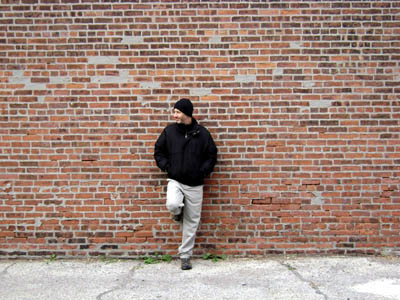Promoting Plone in Latin America: An Interview With Foundation Member Héctor Velarde
Héctor has been an active member of the Plone community since 2005.

Héctor Velarde has contributed code, translations, training, and documentation to the Plone community since 2005. He co-founded the Mexican Plone Users’ Group in 2008 and helped organize the 2011 Plone Symposium South America. He has participated in numerous Plone events worldwide.
In the following interview, Héctor shares some of his thoughts on open source, adopting Plone, and giving back to the community.
What led you to Plone?
In 2005, I was in charge of upgrading the website for the Mexican newspaper La Jornada, the first Spanish-language newspaper to have presence on the Internet.
The first thing I did was survey readers, asking how they wanted the newspaper to evolve. I already had my own opinions on that because I'm a news addict, but I wanted to confirm them: people mostly wanted free access to real-time news. I felt that the best way to accomplish this was by using open source software.
At the time, only I knew about PHP as I’d used it for years to develop my personal website. I got in touch with a friend of mine, one of the visionaries who put La Jornada on the web back in 1995, and I asked his advice on what to use.
It came down to two alternatives: one CMS used Perl, I don't recall its name. The other was developed on top of a framework called Zope and made with a language called Python. I started researching both systems.
I hadn’t studied computer science in college, and I didn’t really have a strong opinion on what we should use. But after reading a couple of lines of Perl code...
And then finding out that big companies like Google and Disney and U.S. government agencies like NASA were using Python. I no longer had any doubt: I chose Plone, and I have no regrets.
You’re very active in the Plone community. Can you talk about how you got started and some of the community building you’ve done?
After participating in the first few symposiums and conferences, I fell in love with the community. I’d found so many great people working with Plone that I wanted to reproduce the same sort of experience in my hometown, Mexico City. That led to co-founding the Mexican Plone Users’ Group. I think the group is stagnant, as we haven’t reached a tipping point yet.
I’ve also done work with Brazil’s Plone community. It’s relatively easy to make things happen in that community because there are so many great people contributing a lot of their time, and Plone has a strong presence in the Brazilian government.
One community effort I enjoy a lot is giving training. It feels great when you discover that the "basic knowledge" you thought you had is really much more than that. And it’s rewarding when you can help other people understand the technology and become more proficient and productive.
You’ve also contributed to dozens of Plone products. Can you talk a bit about these contributions?
I’ve mostly contributed quality-assurance stuff, as well as ideas and proofs-of-concepts. I got started by creating package translations— it was what I felt comfortable contributing in the beginning.
I do think it’s important to give something back early on— not just start asking for help with your hands empty. Contributing package translations was my way of saying, “I need your help and, in exchange, I can do this.”
I understand you left the Plone community for a while and then came back. What were you doing during that time? What brought you back?
I left La Jornada in 2008 to work at a company that offered proprietary solutions for newspapers. I learned a lot, but that model was not for me. While I was there, I was always talking about the benefits of the open source business model. They laughed at me. I was the weird guy.
I left there to start my own business in 2010, and I’m infinitely more satisfied. For me, it’s much more rewarding knowing someone is using or contributing to an open source project I'm working on than getting a sales commission.
The other day, I visited my old employer's web page and I saw that they’ve started using open source too.
What do you focus on in your business?
I share my time between Simples Consultoria, the best known name in Plone in Brazil, and Open Multimedia, a Mexican start-up that offers solutions for news companies. I mostly do project management and quality assurance work, but I also think about new features we can offer to our customers.
I've been involved in deploying news sites in Venezuela but also some intranets and government sites in Brazil.
Any messages you want to share with the Plone community?
I want to invite everybody to the next Plone conference, in Brasilia. I know the people coordinating it, and I know it’s going to be the best Plone conference ever.
And finally, what are your future plans in the community?
Share and Enjoy.